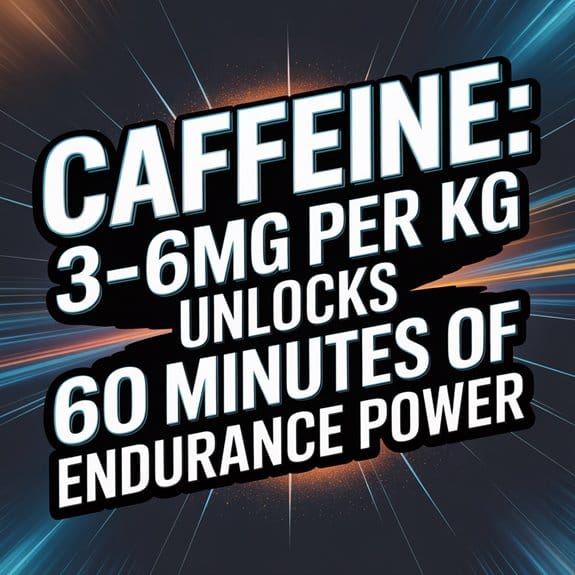Is caffeine the secret weapon endurance athletes swear by? The European Food Safety Authority (EFSA) thinks it might be. New guidelines confirm caffeine enhances endurance performance and reduces perceived effort during exercise. Athletes in cycling, running, or other long-distance sports could see faster times and feel less strain, according to EFSA-approved health claims.
Caffeine works by improving how muscles use energy. It helps preserve glycogen, the body’s stored carbs, letting athletes push harder for longer. It also speeds up oxidative metabolism, better converting fat and carbs into fuel. For best results, experts suggest 3 to 6 milligrams of caffeine per kilogram of body weight. That’s roughly 210-420 mg for a 154-pound person. Timing matters: take it about 60 minutes before activity.
Caffeine boosts endurance: preserves muscle glycogen, enhances fat-to-fuel conversion. Optimal dose: 3–6 mg/kg (210–420 mg) taken 60 minutes pre-activity.
But not everyone gets the same kick. Genetics and how often someone drinks coffee or tea play a role. Fast metabolizers might feel alert and perform better, while slower ones could gain little or feel jittery. Caffeine’s effects start within 45 minutes and last for hours. In muscles, it enhances calcium flow, aiding strength during repetitive movements. Its breakdown creates compounds like paraxanthine and theobromine, which boost fat burning and improve blood flow to working muscles. It even dulls pain signals, making tough workouts feel easier.
Beyond marathons, caffeine also sharpens focus in sports like tennis or golf. Team athletes might see mixed benefits—studies say it helps some, not all. Most research focuses on pure caffeine supplements, not coffee, though both contain similar amounts.
EFSA mandates that products claiming endurance benefits must have at least 70 mg per serving. Companies now highlight caffeine’s perks on labels. But safety caps exist: 200 mg in one dose, 400 mg daily. Exceeding these risks insomnia, nausea, or shaky hands. Hydration matters, too—caffeine’s mild diuretic effect means athletes should drink extra water. Recent studies confirm moderate coffee consumption doesn’t disrupt fluid balance, supporting EFSA’s position that it safely contributes to hydration needs during workouts.
For regular users, tolerance might blunt caffeine’s edge. Testing doses during training helps find the sweet spot. While science backs caffeine’s advantage in endurance, the final call depends on the athlete. As EFSA settles the debate, runners, cyclists, and gym-goers now have one less question—and maybe one more pre-workout habit.

